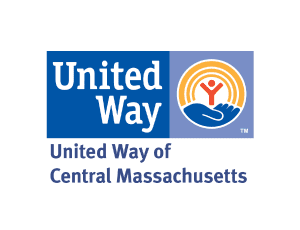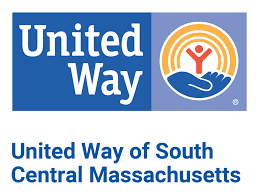
April 22, 2024
Keeping kids out of foster care saves families — and state money
BY Boston Globe
There are lots of good ways to spend money to help families and children. Rarer are policies that help families while saving money.
Yet that is the likely outcome when programs intervene early to stabilize families involved with the Department of Children and Families and prevent children’s removal. When families can safely remain together, it saves children and parents anguish while avoiding costly foster care placements and court cases.
For the past couple of years, funding from the courts and the state has supported pilot programs where lawyers, social workers, parent advocates, and mediators intervene with families when a DCF case is opened. While more study of these programs’ outcomes is needed, early evidence is promising, and similar models are being expanded nationwide. Massachusetts should ensure there is stable funding for these programs and that they are given the resources needed to expand. The investment will pay off in dollars and, more importantly, in children’s lives.
These programs generally do not deal with allegations of child abuse. But more than 85 percent of the approximately 23,600 children DCF found to have experienced mistreatment in fiscal 2022, the latest data available, involved neglect, a category often influenced by poverty. It is those cases where efforts to stabilize a family can sometimes alleviate DCF’s concerns.
As the Globe recently reported, the largest prefiling intervention program in Massachusetts is the Family Preservation Project, run by four legal aid organizations around the state. The idea is to give families free legal help to deal with circumstances that spark DCF involvement. For example, if a child lacks stable housing, an attorney can help fight an eviction. An attorney could help a family apply for public assistance so they can buy food, or help a domestic violence victim apply for a restraining order against an abusive partner.
Community Legal Aid launched the state’s first program in Hampden County in December 2021. That agency gives every participating family a lawyer, social worker, and parent advocate with experience with DCF. The attorney does legal work, including appealing DCF decisions. The social worker connects the person with community resources. The parent advocate explains DCF processes and offers support.
Senior supervising attorney Madeline Weaver Blanchette gave the example of a case where DCF was concerned children were living in squalor. Her team found the mother trying to manage two children with special needs without services. Special education attorneys negotiated education plans with their schools. When the mother needed copies of her children’s birth certificates and Social Security cards, a social worker helped her make appointments, and the parent advocate accompanied her.
Susan Elsen, senior child welfare attorney at the Massachusetts Law Reform Institute, which coordinates the Family Preservation Project, said in the fiscal year beginning July 1, 2022, the project served 110 families and only two children were removed from their homes.
Another Massachusetts program being tested is pre-removal mediation. DCF refers families at risk of losing custody to the nonprofit Plummer Youth Promise. A trained mediator contacts the family and within a week pulls together the family, DCF, and other relevant people, like a school counselor, doctor, or relatives. They hold a mediation session with the goal of resolving safety concerns and keeping a child at home or developing a plan for their care. For example, if a parent’s substance use disorder leads them to neglect their child, a mediator might help craft a plan where the parent enters inpatient treatment while a grandparent watches the child.
The University of Michigan Law School’s Child Advocacy Law Clinic in 2009 launched the Detroit Center for Family Advocacy, the first program nationally to offer legal representation and social work to families before a court petition for removal was filed. A study of that program’s first three years found that of 110 children served, the child welfare agency filed just four petitions for removal and all were dismissed. Delivering these services cost on average $3,200 per family served per year, and Michigan avoided an estimated $1.3 million in foster care and court costs.
Since then, the popularity of prefiling legal representation programs has exploded. There are now about 54 active programs in 34 states, said Emilie Cook, a fellow at Emory University’s Barton Child Law & Policy Center. Cook said most programs are small or in the pilot stage, so there is not robust data on outcomes. But early data from places including New Jersey, Oklahoma, and Iowa show the programs appear to be preventing removals. Cook said these programs represent a national trend in acknowledging that a lot of what drives families into the child welfare system are poverty-related issues that can be addressed through services.
The challenge is finding sustainable funding. In Massachusetts, Plummer’s program is tiny, with two mediators total, one in Springfield and one in Worcester, who have mediated about 40 cases since September 2021. Funding comes from a contract DCF has with Plummer for other services.
The Family Preservation Project is larger but not statewide. For example, Community Legal Aid operates its family preservation program in Hampden County and in Worcester, where a team formed in March, but not throughout its service area in Berkshire, Hampshire, and Franklin counties. Funding for the project came initially from a court system grant, then from a $1.4 million state appropriation that expires in June.
The Committee for Public Counsel Services has a new stream of federal money that could potentially be used for these programs, and Chief Counsel Anthony Benedetti said the agency plans to hire a coordinator to give grants for family preservation work. But developing a grant program will take time.
As lawmakers consider next year’s state budget, it is worth examining what pots of money — state or federal, public or private — can be used to continue and expand these programs. Spending money up front to keep children safe at home will pay off in long-term savings for the state and better outcomes for families.
Editorials represent the views of the Boston Globe Editorial Board. Follow us @GlobeOpinion
















































